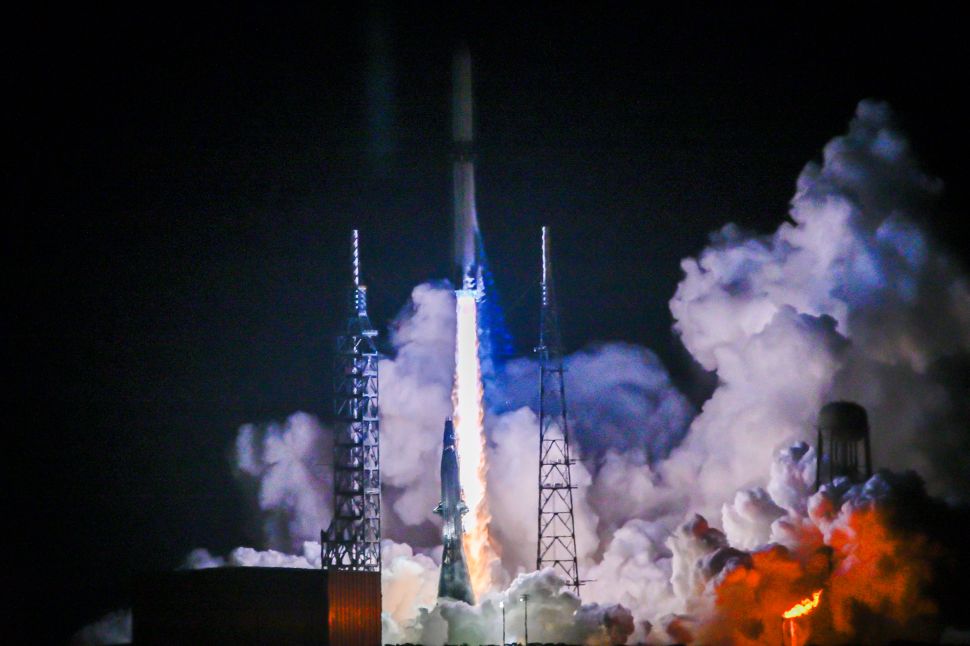With its seven engines roaring to life, Blue Origin’s New Glenn rocket lifted off from Launch Complex 36 at Florida’s Cape Canaveral Space Force Station early this morning (Jan. 16). The mission represents Blue Origin’s first entry into orbit—a major milestone for the Jeff Bezos-owned space venture as it attempts to make progress in a field currently dominated Elon Musk’s SpaceX.
“Today marks a new era for Blue Origin and for commercial space,” said Jarrett Jones, senior vice president for Blue Origin’s New Glenn project, in a statement where he signaled that more is to come from the 320-foot-tall rocket. “We’re focused on ramping our launch cadence and manufacturing rates.”
As it flew over the Atlantic Ocean, the rocket’s booster successfully separated from its upper stage, which subsequently fired up its own engine and entered orbit approximately 13 minutes after liftoff. It carried a prototype of Blue Origin’s Blue Ring vehicle—which aims to eventually host satellites—and is expected to spend six hours in space before de-orbiting and burning up in the atmosphere.
While the main purpose of today’s mission was to reach orbit, Blue Origin also attempted to complete a secondary goal of landing its booster on a barge in the Atlantic Ocean. Shortly after the two-stage rocket separated, however, Blue Origin lost its booster as it re-entered the atmosphere. A successful return of the booster on New Glenn’s maiden launch had always been considered an overly ambitious goal, as evidenced by the booster’s nickname, “So You’re Telling Me There’s a Chance.”
Blue Origin and SpaceX’s rivalry
New Glenn’s maiden voyage ramps up an ongoing space race between Blue Origin and SpaceX, which were respectively founded the world’s two richest people. Bezos currently has an estimated net worth of $237 billion, while Musk’s fortune stands at $428.5 billion.
Until today, Blue Origin had yet to launch a rocket into orbit. Its other rocket, New Shepard, has flown space tourists to suborbital space. SpaceX, meanwhile, conducted a staggering 134 orbital launches in 2024 alone. Blue Origin also intends to eventually use New Glenn rockets to send its Blue Moon Mark 1 lunar lander to the Moon, a mission expected to launch in 2025. SpaceX is not expected to see a lunar variation of its Starship spacecraft reach the Moon until the following year.
In late 2023, Bezos tapped Dave Limp, a former Amazon (AMZN) executive to lead Blue Origin. The space venture has been “in kind of an R&D phase for a long time,” Limp told CNBC in October, adding that changing this approach was a key aspect of his vision for the company.
Bezos, too, has called for swifter progress. His decision to step down as Amazon’s CEO in 2021 was largely influenced by a need to focus on Blue Origin, he told the podcaster Lex Fridman in December 2023. “The primary reason I did that is so I could spend time on Blue Origin adding some energy, some sense of urgency,” said the billionaire. “We need to move much faster. And we’re going to.”

